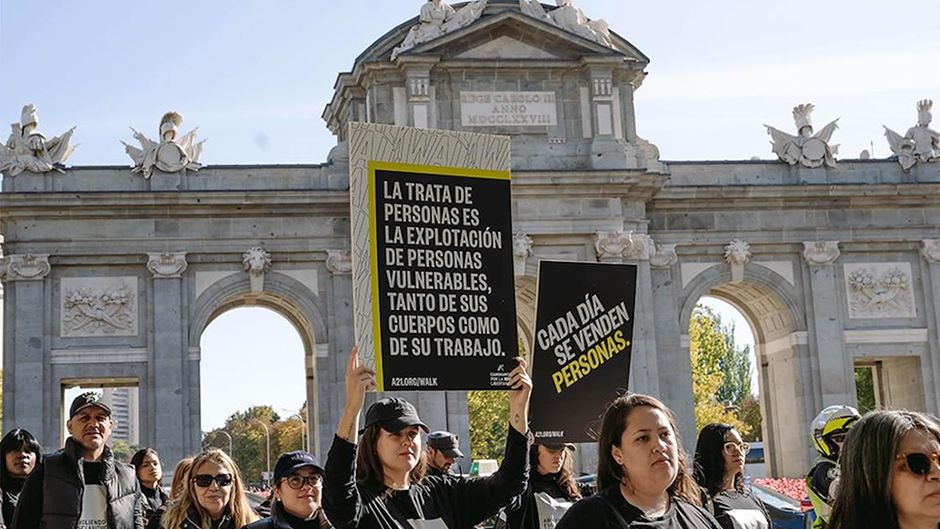19 Spanish cities march against human trafficking
The Walk for Freedom silent marches expose the invisibilisation of modern slavery and the need to take action as a society.
Protestante Digital · SPAIN · 21 OCTOBER 2024 · 18:35 CET

On 19 October, thousands of people across Spain participated in the tenth edition of Walk for Freedom, a peaceful and silent march held in 19 Spanish cities and over 50 countries around the world to raise awareness of the human trafficking crisis.
Participants walked in single file and handed out information leaflets and the Anti-Trafficking Helpline, a tool that helps victims and the general public to report suspicious situations.
The marches were held in the cities of Barcelona, Bilbao, Cádiz, Gijón, Granada, Madrid, Málaga, Menorca, Murcia, Palencia, Salamanca, Santander, Sevilla, Tarragona, Tenerife, Valencia, Valladolid, Vigo and Zaragoza.
According to the International Labour Organisation, there are 49.6 million people trapped in modern slavery today.
This scourge affects men, women, boys and girls in every country in the world and, although it occurs in broad daylight, it is a crime that remains hidden.
Spain is a transit and destination country for victims of human trafficking. According to the Statistical Balance on trafficking and exploitation of human beings in Spain of the Intelligence Centre Against Terrorism and Organised Crime, in 2023 the State security forces formally identified 502 victims of trafficking.
A21 Anti-human trafficking helpline
A21 is an international organisation that has been fighting human trafficking since 2008 through a strategy based on three pillars: Education, Intervention and Recovery.
In Spain, A21 works to prevent human trafficking through campaigns in collaboration with the Spanish Civil Guard and the National Police, as well as through training and awareness-raising activities for professionals.
A21 also runs the Anti-trafficking helpline (900 759 759), which aims to help victims of human trafficking, as well as to receive information from any citizen who may have a suspicion about a case.
The Anti-trafficking helpline also has a job offer verification service, as this is one of the most common recruitment methods used by traffickers to attract victims, and a simultaneous translation system in over 230 languages.
Evangelicals at the forefront of anti-trafficking work
In recent years, evangelical entities and organisations have become involved in the fight against human trafficking and the implementation of strategies for the protection of victims, as well as their social reintegration.
That work has been recognised by local, regional and national authorities, which have developed several collaboration agreements in this field.
Among other milestones, the direct action to help women victims of trafficking, the dissemination of audiovisual content, the setting up of professional forums, and the holding of denunciation and awareness-raising marches are some of the highlights.
At the European level, evangelicals have also been very active through the European Freedom Network, which brings together dozens of organisations in Europe that are concerned to denounce human trafficking and other forms of exploitation.
One more year
Learn all about our #OneMoreYearEF campaign here (English).
Published in: Evangelical Focus - europe - 19 Spanish cities march against human trafficking
